By COLLEEN LONG
Associated Press
NEW YORK (AP) _ Police officers acted appropriately in carrying out the city’s stop, question and frisk policy, and dozens of witnesses who claimed racial bias didn’t prove their case, a lawyer for the city told a judge Monday.
“They failed to show a single constitutional violation, much less a widespread pattern or practice,” city attorney Heidi Grossman said during her closing argument at a trial examining how the stops are conducted. She added there was “no indication of racial motivation whatsoever.”
Gretchen Hoff Varner, a lawyer for the plaintiffs, disagreed, saying the police department “has laid siege to black and Latino neighborhoods over the last eight years … making people of color afraid to leave their homes.”
She said that blacks and Latinos make up a little more than 50 percent of the city population, but 85 percent of the people stopped by police as part of the tactic are black and Hispanic.
The summations followed more than nine weeks of testimony from men who say they were wrongly stopped because of their race and police officials who insisted the nation’s largest force operated with integrity.
The case is in the hands of U.S. District Court Judge Shira Scheindlin, who will rule after examining more than 7,000 pages of trial record. She may order major changes to the policy, which could alter how police departments operate nationwide.
More than 5 million stops have been made in New York in the past decade. Police must have reasonable suspicion to stop someone, a standard lower than the probable cause needed to justify an arrest. Only about 10 percent of the stops result in arrests.
About a dozen black and Hispanic men told the judge of disturbing and uncomfortable encounters with police that left them feeling confused, angry and scared.
One witness, 24-year-old Nicholas Peart from Harlem, wept on the stand as he described how he was handcuffed and put into the back of a squad car. A teenager told how he was stopped walking down the street. In each instance, the witnesses said they could find no basis for the stops other than they were minorities. But many of the officers who did the stopping also explained their legal reasoning.
Grossman said the witnesses were “woefully lacking” considering that lawyers had years to find the best examples of people who said they were stopped because of their race.
“The alleged complaints of racial profiling are more fiction than reality,” she said. “It is not the NYPD’s policy to target black and Hispanic youth to instill fear in them so they feel they can be stopped at any time.”
Lawyers for the men who sued say officers make illegal stops in part because they feel pressure from superiors instituting illegal quotas. Some officers testified they were punished for not making enough stops and were harassed by fellow officers upset they had blown the whistle. Yet others said no quotas existed and they never felt pressure to make a stop.
The trial has provided a rare window into the NYPD, with about a dozen officials testifying on how they do their jobs. Officers are told to stop the “the right people, at the right time in the right location,” a phrase first heard in the early days of the trial on a secret recording made by one whistleblower officer during a heated exchange over his performance evaluation. Afterward, it was repeated by nearly every official who testified.
Police have said the phrase means the location where crimes have been occurring, at the time they have been occurring, and an individual who matches the description of a suspect, or someone who appears about to commit a crime.
Lawyers for the men who sued say the phrase is code for targeting blacks and Hispanics in poor neighborhoods.
Plaintiffs say a court monitor must be appointed to facilitate changes in training, supervision and the documentation of street stops. An expert for the city testified that the department has enough checks and balances already in place.
The tactic has become a city flashpoint, with the mayor and police commissioner defending it as a necessary crime-fighting tool, and other city lawmakers calling for major change.











